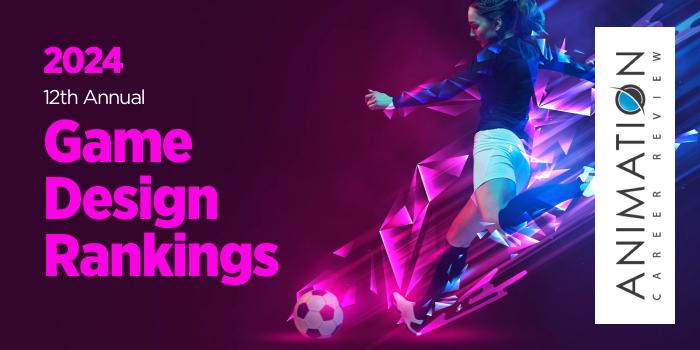DigiPen Institute of Technology (DigiPen) was the first college in the world to offer a bachelor’s degree in Video Game Technology and Development. Since then, this Houdini Certified School has accumulated 57 IGF awards—more than any other school in the world, and students have won close to 315 awards for game projects and academic papers. In addition, DigiPen graduates are credited on more than 2,000 commercial video games.
The Video Game Technology and Development program has expanded to include a BS in Computer Science (CS) & Game Design; BS in CS in Real-Time Interactive Simulation; and a Game Design BA.
A Digital Art MFA is also available. This program allows students to customize a specialization from courses across any area at DigiPen. Students have access to courses such as Game Design, Development and Production; Scripting for Games; Lighting and Rendering; Character Rigging; Organic and Hard Surface Modeling; Storyboarding; Advanced Character Creation; and Hair and Clothing Simulation.
The Digital Art MFA requires a Final Thesis Project completed across three courses: Thesis Pre-Production, and Thesis I and II. MFA students will leave the program with a Professional Portfolio. Graduates are prepared to pursue careers in both Games and Animation.
The DigiPen Game Design BA is an interdisciplinary degree that explores design theory, games, applications, and interactive media. The Computer Science & Game Design BS explores artificial intelligence (AI); system, level, and technical design; user interface design; programming languages; and game design.
The BS in Computer Science in Real-Time Interactive Simulation program is accredited by the Computing Accreditation Commission of ABET. Students in this option will master programming languages; 2D and 3D simulation; graphical user interfaces (GUIs); game engine software; artificial intelligence (AI); graphics rendering; and software engineering.
For exceptional students, DigiPen offers an accelerated BS/MS program that can be completed in just five years.
Students in all programs will work in multidisciplinary teams in a studio environment to create software and a series of original video games.
Graduates of all programs at DigiPen Institute of Technology enjoy a high job placement rate. To date, more than 1,500 companies have hired DigiPen graduates. Examples include Epic Games, Electronic Arts (EA), Sony Interactive Entertainment, Nintendo, DreamWorks Interactive, Google, Amazon, Walt Disney Imagineering, SpaceX, Warner Bros. Interactive Entertainment, Microsoft, Activision, Insomniac Games, Zynga, Booz Allen Hamilton, Intel Corporation, Ubisoft Shanghai, Bungie, Take-Two Interactive, and ArenaNet.
Established in 1988 as a Vancouver, British Columbia-based computer simulation and animation company, DigiPen Institute of Technology serves 1,200 students enrolled in 10 undergraduate and graduate degree programs in Computer Science, Digital Art and Animation, Engineering, Game Design and Development, and Music and Audio. In addition to the Redmond, Washington campus, DigiPen has international campuses in Singapore and Bilbao, Spain.
DigiPen also has educational partnerships with Princess Nourah bint Abdul Rahman University in Riyadh, Kingdom of Saudi Arabia; Keimyung University in South Korea; The One Academy in Kuala Lumpur, Malaysia; and Thammasat University in Thailand. DigiPen Institute of Technology is accredited by the Accrediting Commission of Career Schools and Colleges (ACCSC).




